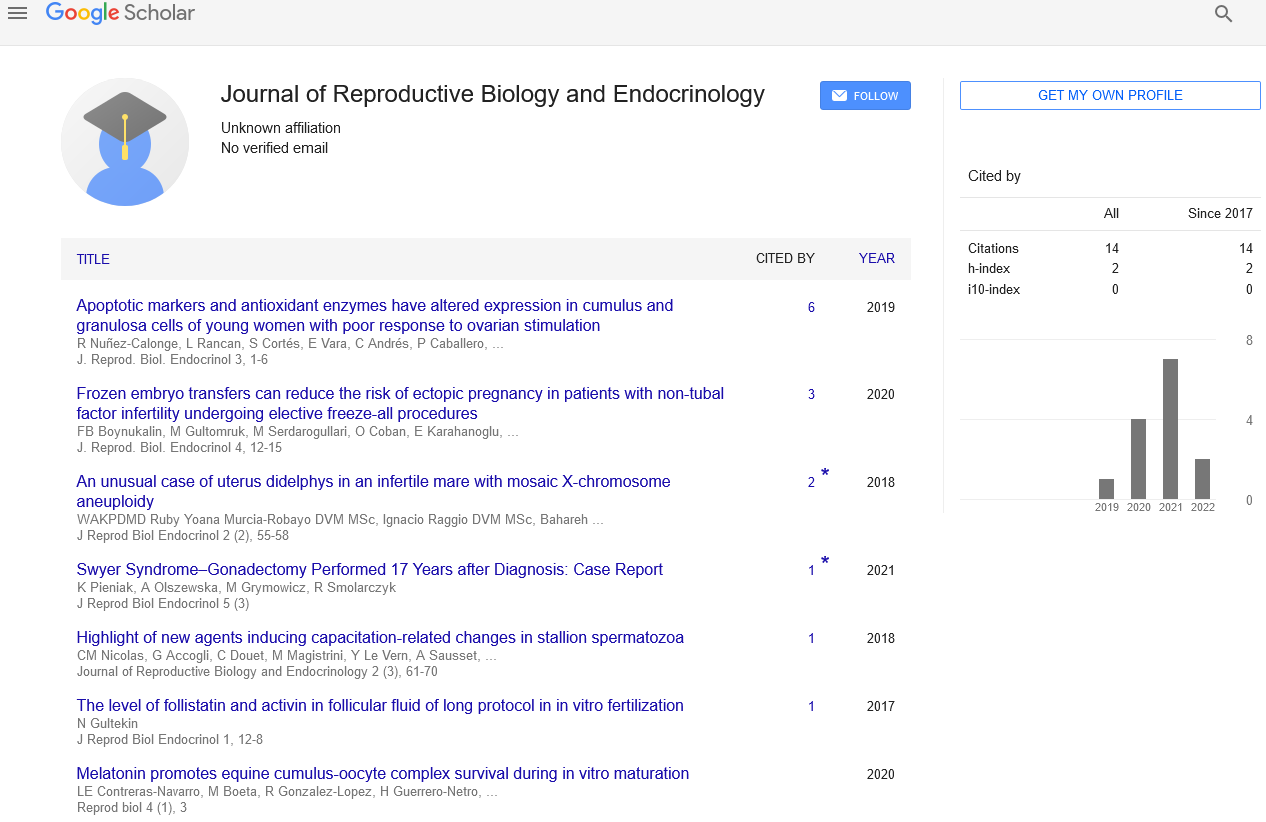Genetic disorders develop during pregnancy
Received: 04-Mar-2021 Accepted Date: Mar 18, 2021; Published: 25-Mar-2021
Citation: Surapuneni SK. Genetic disorders develop during pregnancy. J Reprod Biol Endocrinol. 2021;5(2):2
This open-access article is distributed under the terms of the Creative Commons Attribution Non-Commercial License (CC BY-NC) (http://creativecommons.org/licenses/by-nc/4.0/), which permits reuse, distribution and reproduction of the article, provided that the original work is properly cited and the reuse is restricted to noncommercial purposes. For commercial reuse, contact reprints@pulsus.com
When a problem with a baby's chromosomes or genes leads to physical defects or diseases, this is known as a genetic disorder. Millions of cells make up our body. There are 46 chromosomes in each cell, which are arranged in 23 pairs in each cell. A person's mother inherits half of their chromosomes and their father inherits the other half. These chromosomes comprise our DNA, or genes, which are the blueprints for how we evolve and function. Our eye color to our disease risk is all part of these directions. When these instructions are modified in a negative way, it may influence a child's growth. Babies with genetic disorders can experience delayed mental and physical growth, physical anomalies, and chronic illnesses throughout their lives.
Risk Factors
There are many factors that raise the chances of having a child with a genetic disorder
Different Types of Disorders Developed During Pregnancy
During pregnancy, there are a variety of conditions that can be seen:
Single gene disorder [1] when a disease is caused by a mutation in only one gene, it is known as a single gene disorder. Cystic fibrosis, sickle cell anaemia, Tay-Sachs disease, haemophilia, and Marfan syndrome are only a few examples.
Chromosomal abnormalities: There are incomplete or additional chromosomes, or fragments of chromosomes, in chromosomal anomalies. An extra chromosome number 21 causes Down syndrome, the most common chromosomal abnormality [2].
Teratogenic disorders: arise when a baby is exposed to chemicals that cause anomalies during pregnancy, often known as "teratogens”. In the first trimester, as all of the organs are developing, babies are extremely responsive. Alcohol, drugs, lead, elevated levels of radiation exposure, as well as some medicines, infections, and radioactive substances, are all teratogens [3].
For genetic disorders there are two types of testing
Screening tests determine the likelihood of your baby developing those genetic disorders.
- Carrier screening
- Prenatal genetic screens
- cell-free DNA screening or Non-invasive Prenatal Testing (NIPT)
Diagnostic tests – these tests will determine if a baby has any genetic disorders
- Chorionic villus sampling
- Amniocentesis
- percutaneous umbilical blood sampling (PUBS) or Fetal blood sampling
Fetal Genetic Disorders
The course of treatment is determined by the genetic condition and the circumstances of the pregnancy. If your baby is diagnosed with a genetic disorder [4] when you are pregnant, you will undergo the following treatment:
- A maternal-fetal medicine physician will provide specialized care.
- Individualized treatment depending on the genetic condition, your pregnancy, and the interests of your family.
- Health therapy during pregnancy, such as fetal interventions, to surgery right after birth is both choices.
- Genetic counselors, imaging technicians, and foetal specialties are all part of a multidisciplinary, integrated healthcare team.
Is it Possible to Avoid Genetic Abnormalities?
Before you start trying to conceive, speak with your doctor about what you should do to ensure a healthy pregnancy. Ionizing radiation, alcohol, narcotics, and some chemicals are examples of dangerous substances that men and women should prevent. Preconception genetic tests will help you figure out whether you're more likely to have a child with a hereditable genetic disorder. If tests indicate that you have a high risk of contracting cancer, you should seek medical attention immediately.
REFERENCES
1.Ropers H. Single gene disorder come into focus- again. Dialogues Clin Neurosci. 2010;12:95-102.
2.Grove J. Improvement of Results for Down Syndrome Infants. Journal of Down Syndr Chr Abnormal. 2021;7:154.
3.Alwan S, Christina D. Chambers Identifying Human Teratogens: An Update. J Pediatr. 2015;4:39–41.





